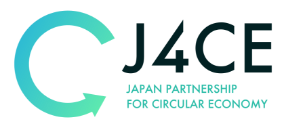The PaperLab A-8000, a dry-process office papermaking system
[Company / organization] Seiko Epson Corporation
Planned start date, etc.
Sales to start in November 2016
Description of the technology and business model
The PaperLab shrinks users’ environmental footprint by using Epson’s unique Dry Fiber Technology (DFT) to recycle used paper. New paper is produced in a three-step papermaking process that consists of defibration, binding, and forming. Unlike conventional papermaking processes, which require a tremendous amount of water, the PaperLab does not use water in the papermaking process, though a small amount is used to maintain the humidity inside the machine. The PaperLab thus conserves precious water resources. The product also helps to ensure information security, since sensitive documents can be completely destroyed on-site rather than being hauled away for disposal. Moreover, the paper is destroyed without damaging the paper fibers. Epson is promoting the concept of eco-conscious offices that use the PaperLab in combination with energy-efficient business inkjet printers that use fewer consumables to reduce environmental impact.
Achievements, targets, etc.
Since its launch, the PaperLab has been installed at forward-looking, environmentally aware companies and government offices in Japan that are looking to contribute to the environment, promote recycling, highlight environmental action to citizens, and ensure information security. Epson has also begun sales overseas. Companies use the paper produced by the PaperLab for in-house documents and giveaway goods. Municipal government offices use the paper for things such as notebooks that they distribute or for forms that citizens use to request services. Epson has installed about 20 of these systems in its own offices, where it produces its own paper and gets ideas for product improvements.
The core technology in the PaperLab is DFT. This technology produces highly functional materials by defibrating, binding, and forming them as needed depending on the application. It is already being put to practical use in producing ink pads for absorbing waste ink in printers. Epson is developing this technology to open new areas for practical applications.
For further information
See the link below to learn more about this product.
The KAMIKURU Project (only in Japan)
Eco-conscious office (only in Japan)
https://www.epson.jp/products/environment/office/
Case studies from PaperLab customers in Japan
https://www.epson.jp/products/paperlab/customers/
Further community cooperation through paper recycling. Create employment opportunities. Mitigate environmental impact. Foster human capital by providing educational opportunities. Contribute to the achievement of SDGs. Stimulate cooperative community recycling. Collect used paper. Co-create community. New upcycled paper.
- Reduce
- Recycle
- Utilisation
- End-of-use
- Paper/Wood
- Individual company
- Currently under implementation (already in business)
- Case/initiative by individual company



